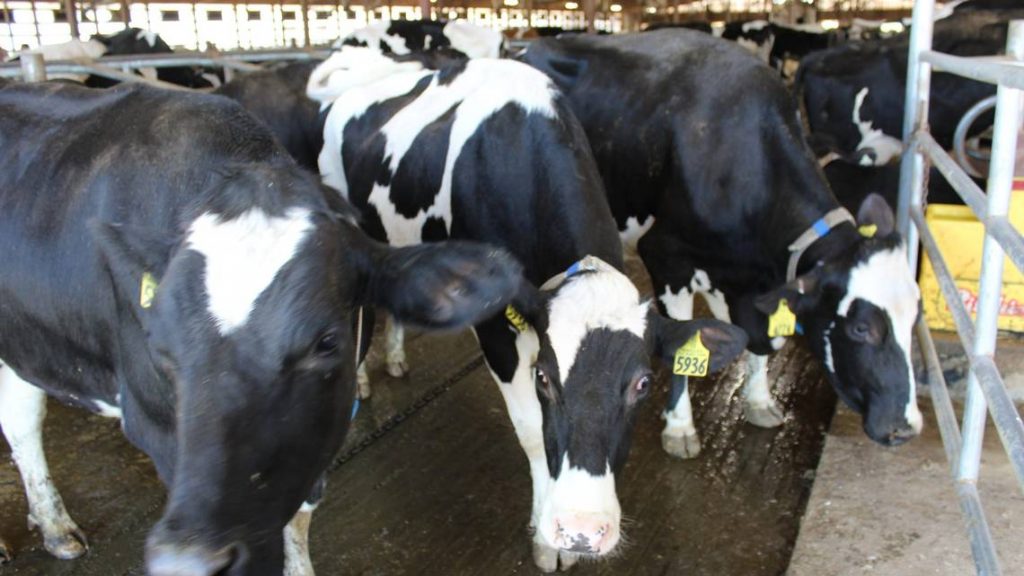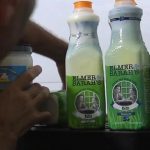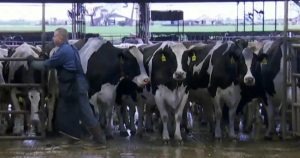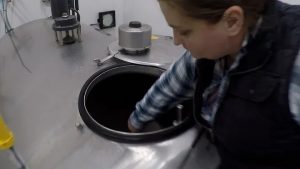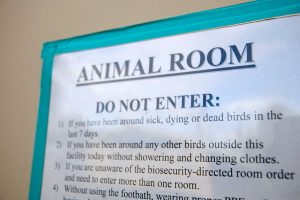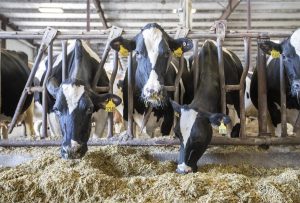
A highly contagious avian flu made the jump from birds to mammals earlier this year, infecting dairy cattle in Kansas and other states. Four infected herds have been identified in Kansas so far, and the state is taking measures to monitor cows for disease before moving them within the state.
Despite cases being found in three neighboring states, Missouri has reported no Highly Pathogenic Avian Influenza (HPAI) infections among cows since the first mammal cases were identified in late March. But the state is only aware of 18 cows that have been tested for the virus in that time.
One infectious disease expert said last week this level of testing isn’t sufficient to properly monitor the spread of HPAI among cattle in the state, Jefferson City’s KRCG TV station reported. But state officials say that the virus simply hasn’t spread to Missouri’s herds.
“There’s not a reluctance from our producers to test at all,” Missouri Department of Agriculture spokesperson Christi Miller told The Star. “We just have not had any producers that have reported symptoms in their herd. … We’re very fortunate in our state.”
In total, cows in 157 herds in 13 states have tested positive for the disease. The federal government doesn’t publicly display numbers on how many individual cows have been tested or infected.
The rules around monitoring HPAI vary between Missouri and neighboring states like Kansas, Oklahoma and Iowa, all of which have seen the disease in their dairy cattle. Here’s what we know — and what we don’t — about the virus’s spread.
WHEN DO FARMERS HAVE TO TEST THEIR DAIRY COWS FOR THE AVIAN FLU?
The USDA announced in April that lactating dairy cattle must be tested for HPAI before they are moved across state lines. Miller said the 18 cows tested so far in Missouri were either being moved into or out of the state.
“Our state dairy industry is just a little different than other states,” she said. “We don’t move cows from state to state very often.”
But these federally reported tests are only part of a larger picture. Farmers and veterinarians test sick cows for the virus when they exhibit symptoms — but these tests are not required to be reported to state or federal departments of agriculture unless they come back positive.
This leaves officials in the dark about how much testing is being performed. Both the Kansas Department of Agriculture and the industry group Kansas Dairy told The Star that they don’t know — even approximately — how many cows have been tested in Kansas for the avian flu.
“I wouldn’t have any reasonable estimate of the number of tests that have been performed at this time,” Kansas Dairy CEO Janet Bailey wrote in an email to The Star on Monday.
Kansas has stricter rules than Missouri about monitoring HPAI among dairy cows. On April 22, Kansas Animal Health Commissioner Justin Smith released guidelines requiring dairy cattle to have a veterinary inspection certificate before being moved “into or within” the state.
This document requires a veterinarian to sign off on the health of the animals — but doesn’t require them be tested for the virus unless they are showing symptoms of the avian flu, a Kansas Department of Agriculture employee told The Star.
The U.S. Department of Agriculture did not respond to The Star’s request for comment on how many Kansas cattle have been tested in order to cross state lines. The industry group Missouri Dairy also did not respond to a request for comment on their state’s testing protocols Monday.
DO CONSUMERS HAVE TO WORRY ABOUT THE AVIAN FLU IN DAIRY CATTLE?
Current evidence indicates that dairy lovers have nothing to fear from the milk on grocery store shelves.
The avian flu is generally mild and treatable in dairy cows, and milk from cows with active infections is discarded. The U.S. Food & Drug Administration has found that the pasteurization process kills any pathogens that may appear in milk from healthy cows.
“If any of the H5N1 virus does get through in the milk, pasteurization takes care of that,” Miller said, using the scientific name for the virus that causes the avian flu. “The FDA and the CDC have made numerous reports to verify that they’ve tested milk off the shelves — dairy products, yogurt, ice cream.”
A May FDA survey of 297 dairy samples off retail shelves found none containing the active HPAI virus, which the agency said provides “strong assurances that the commercial milk supply is safe.”
The biggest concern from this outbreak of the virus has been its jumps between different species, including four known U.S. cases in which it spread to a human who had been in contact with an infected cow.
It’s been three months since the last positive HPAI case was found in Kansas cows, and Miller said that cases generally decline over the summer. But when the next wild bird migration season arrives in the fall, infection numbers may climb again.
You can now read the most important #news on #eDairyNews #Whatsapp channels!!!
🇺🇸 eDairy News INGLÊS: https://whatsapp.com/channel/0029VaKsjzGDTkJyIN6hcP1K
